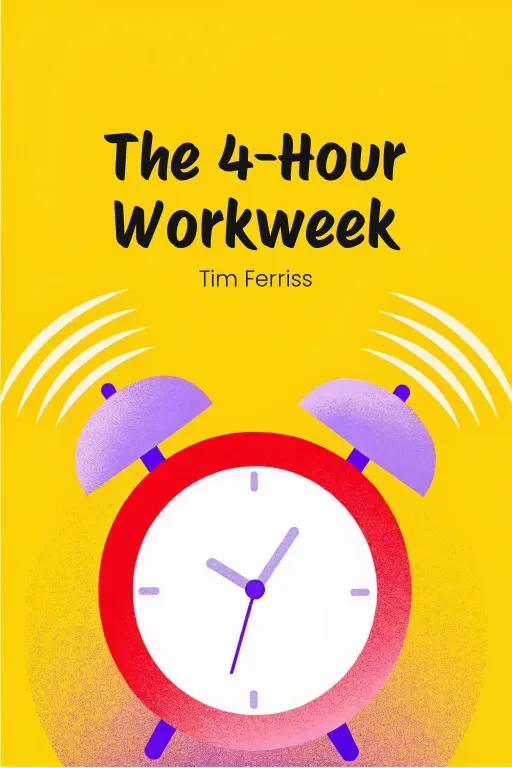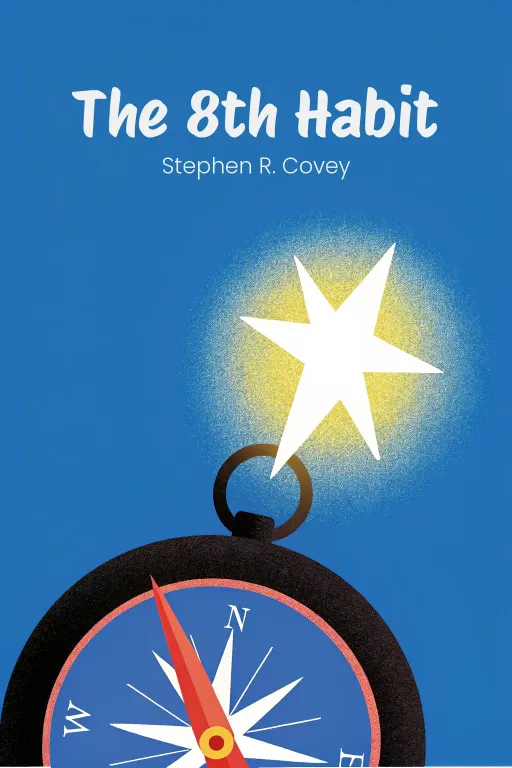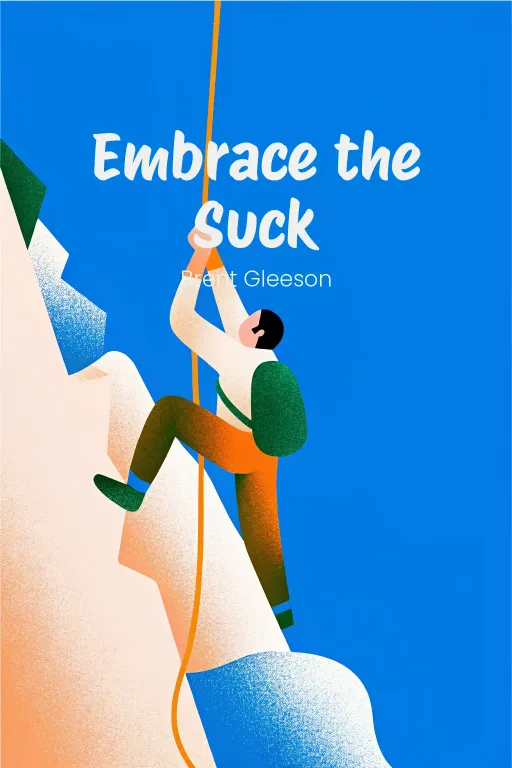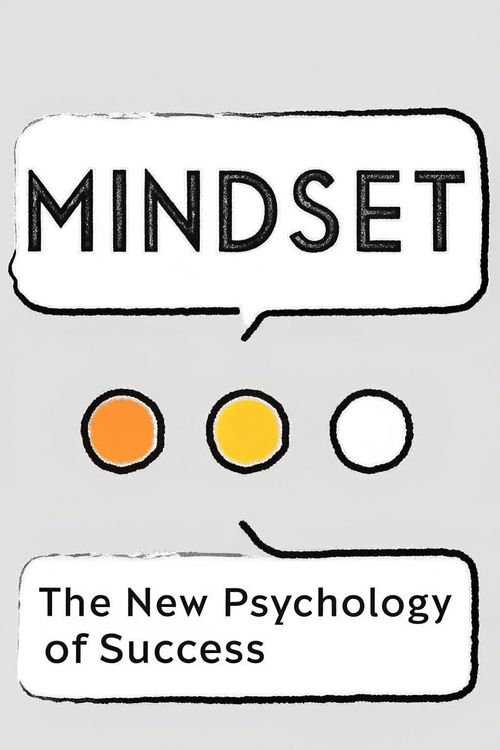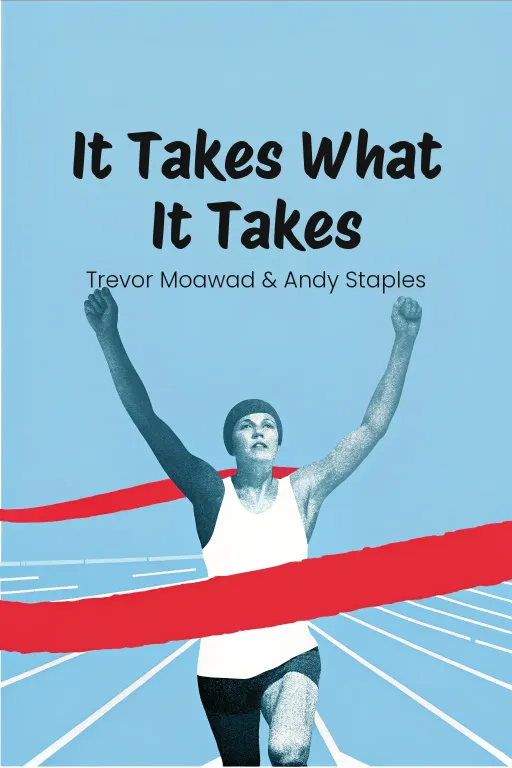
Find Your Greatness: A Voice-Driven Life
Podcast by Beta You with Alex and Michelle
From Effectiveness to Greatness
Introduction
Part 1
Alex: Hey everyone, welcome to the show! Today, we're tackling a really fascinating idea that could totally change how you look at yourself, the people around you, and even your job. Have you ever felt like you're capable of so much more, but you're just… stuck, going through the motions? Michelle: Yeah, or maybe you've sat in a meeting that felt like some kind of bizarre hamster wheel situation – everyone's crazy-busy, but accomplishing absolutely nothing. So, Alex, what's the magic bullet here? Alex: Well, Stephen Covey's "The 8th Habit: From Effectiveness to Greatness" might just be it. It's not just about being productive, it's about uncovering your unique “voice” – this awesome combination of your talent, your passions, and your purpose – and then helping other people find theirs too. Covey basically says that if we focus on trust, solid principles, and human potential, we can really boost both our own lives and entire companies, especially in today's crazy, fast-paced world. Michelle: Okay, ambitious. So, how do we actually “do” it? How do we go from just being, you know, “effective” to truly “great”? Alex: That's precisely what we're going to break down today. We're going to explore three main things. First, we'll talk about what it means to find your own voice – Covey's approach to really tapping into what you're capable of. Then, we'll get into leadership principles, particularly how to inspire and empower others. And finally, we'll look at the practical steps to turn this growth, both personal and shared, into actual, measurable success for organizations. Michelle: So, it’s a journey, then, from kind of soul-searching to actually, you know, getting stuff done, in the real world. Intriguing. Alex: Exactly! Covey sees it as a holistic journey – one that gets your mind, body, heart, and spirit all working together. This is a conversation you definitely don't want to miss.
Finding Your Voice
Part 2
Alex: Okay, let's dive right in. We're kicking things off with the bedrock principle: finding your voice. Covey argues that “before” we can lead effectively or cultivate greatness, we need to understand who we truly are. Think of it as like, figuring out your own internal operating system, you know? Michelle: Alright, I'm game, but let me throw a little skepticism your way. "Finding your voice"? Doesn't that just boil down to a fancy way of saying, "Do what makes you happy"? Alex: Not quite, and that's why Covey's framework is so insightful. He's not talking about fleeting happiness or shallow success. He's digging deeper, into our inherent human potential. To really nail down your voice, Covey outlines four dimensions: body, mind, heart, and spirit. They’re all essential and weave together to help us understand what really drives us. Michelle: Okay, so let me take a shot at connecting the dots here. The body is the engine of action, yeah? Physical health and energy. The mind sparks creativity and ideas, obviously. Heart— emotional intelligence and relationships? And the spirit? Is that where our purpose and deeply held values come into play? Alex: Spot on! Covey sees these dimensions as the very pillars of personal fulfillment “and” human effectiveness. Body and mind give you the energy and creative juice to act, and the heart and spirit guide those actions toward meaningful connection. Michelle: Sounds kind of abstract, right? So let’s ground this a little. Imagine someone staring into their morning coffee, wondering, like, "What am I doing with my life?” How do they actually start engaging these four pillars in a practical way? Alex: That’s such a great question. Covey has some super practical steps. For the body, prioritize physical wellness—exercise, rest, and nourishing food. For the mind, cultivate curiosity, keep learning, dive into some new ideas, you know? When you think about the heart, it's all about building deeper relationships. And for the spirit, align your daily decisions with your core values. Michelle: Right, balance is key, got it. But how do these dimensions help someone find their “unique” voice? What separates one person’s path from another? Alex: This is where Covey brings in four intrinsic traits: vision, discipline, passion, and conscience. These traits help us uncover how our unique talents and values sort of all converge. Michelle: Vision first, naturally. Everyone's into their “vision boards” these days! Alex: Sure, we hear a lot about them, but Covey goes much deeper than just magazine clippings. Vision, in Covey's vocabulary, means envisioning a future you are committed to creating. Think of the late Steve Jobs envisioning the iPhone—not just a gadget, but as a whole new way for the world to connect. Michelle: Jobs, yeah, he definitely had vision. But you can’t build an empire on vision alone. A lot of dreamers fizzle out because they lack… what is it? Discipline. Alex: Precisely! Discipline turns aspiration into achievement. Covey highlights this through the story of Serena Williams, you know? I mean, sure, incredible talent, but it was her relentless dedication to perfecting her game that made her a legend. Discipline is that bridge between vision and the real world. Michelle: But discipline without motivation doesn't last, does it? And that’s where passion comes in. It's what keeps you going when the odds are stacked against you, like Jane Goodall camping out in the jungles to study chimps when, let's be real, a lot of people thought she was nuts. Alex: You're right, it all connects, doesn’t it? Passion fuels perseverance, but without conscience, that final trait, you risk losing your way. Conscience is your internal GPS, making sure your actions align with some kind of higher ethical purpose. Covey gives an example of Gandhi, whose deep commitment to non-violence allowed him to remain true to his values, even when up against enormous pressure. Michelle: Vision, discipline, passion, and conscience—spokes on a wheel, keeping everything moving forward. But do people need to hit a home run on “all” of these four to really find their voice? Alex: Not necessarily. These traits kind of guide the process, but it's not a checklist, you know? It’s more about discovering “how” they interact. And Covey gives us inspiration through some real-world examples—like Howard Schultz, the former CEO of Starbucks. Michelle: Shultz? The coffee mogul? How does Starbucks play into a grand narrative of self-discovery? Alex: Schultz’s story is a perfect example of these four traits working together. He grew up in a working-class family, which instilled in him a value for human dignity – his conscience. Then, he visited Italy and experienced café culture, sparking his vision: create the same kind of space back in the U.S. With discipline, he grew Starbucks from a local chain into a global giant, fueled by a passion for community. Michelle: He didn’t stop at coffee, did he? He wove his conscience into Starbucks, you know, with ethical practices like fair-trade sourcing, and decent employee benefits. He didn't just build a business; he infused his values into everything. Alex: Exactly! Covey would say that Schultz found his voice, and that enabled him to inspire others. His leadership transformed Starbucks into more than just a coffee brand; aligned with values and a sense of purpose, it became a global community space. Michelle: So, finding your voice is like piecing a puzzle together: aligning your natural gifts, what you believe in, your discipline, and what you truly love. But that’s one piece, right? Does Covey take that further, beyond just the individual? Alex: Absolutely. And that's why this is the first topic in the book—it sets the stage for leadership and organizational greatness. Once you've found your own voice, you're in a much better position to help others find theirs, you know? But let's hold that thought for just a moment—we'll definitely dig into leadership next.
Inspiring Others to Find Their Voice
Part 3
Alex: Right, once you've found your own voice, it makes sense to help others do the same. I mean, you take what you've learned and use it to build up your team or organization, right? Michelle: Exactly, we're shifting focus from the individual to the group. Now, we’re diving into what Covey calls "Inspiring Others to Find Their Voice." It's not just about you anymore - it's about setting up an environment where everyone can discover and use their unique strengths. Alex: Okay, I get how this follows on. So, how do we actually start inspiring others? Is there like, a step-by-step guide, or is it one of those vague things where you just lead by example and hope for the best? Michelle: Actually, it's more structured than you might think. Covey highlights a few key things for inspiring others: building trust, creating a shared vision, encouraging collaboration through win-win thinking, and using what he calls the "Third Alternative" for resolving conflicts. Alex: Building trust is a buzzword in every leadership book. What's different about Covey's approach? Michelle: He sees trust as something real. Think of it as an "Emotional Bank Account." Every time you interact with someone, it's either a deposit – like empathy, support, or understanding – or a withdrawal, like criticism, neglect, or broken promises. Relationships thrive when you have more deposits than withdrawals. Alex: So, trust isn't just something you say; it's built up gradually, like a good credit score? That’s actually, refreshingly practical. Can you give me an example? Michelle: Covey tells a great story about a manager in a really stressful factory. When a machine broke down and delayed everything, one employee, who was already having personal problems, really struggled. But instead of punishing him, the manager tried to understand what was going on. She got him counseling and had the team help with his workload for a while. Alex: And it wasn’t just about solving the immediate problem, was it? I'm guessing that act of caring had a much bigger impact. Michelle: Exactly. The employee started trusting the manager again and became really committed to the team. Even better, the whole team’s morale improved - they saw their leader cared about them as people, not just workers. That loyalty strengthened their relationship long term. Alex: Yeah, great, but empathy and trust are just part of it. What about creating a shared vision? I keep hearing that term, but how do you actually make that happen when everyone has different goals? Michelle: That's where leading as a "pathfinder" comes in. Leaders who inspire don't just tell people what the vision is - they create it so everyone sees their role as essential. There’s that famous story about the NASA janitor, right? When someone asked him what he was doing, he said, “I’m helping put a man on the moon.” Alex: Exactly, he probably wasn’t building rockets, but he believed his work mattered, which made NASA's culture so strong. How do you do that in a less exciting environment—like a marketing team selling dishwashers? Michelle: It's about connecting what people do to the bigger goals of the company. A marketing team selling dishwashers can focus on something simple but important: making life better for families. When you show how everyone contributes—from designers to testers—you create a shared sense of purpose. Alex: So, it’s not just about the details of the mission but the meaning behind it. Still, I imagine this can get messy, especially when people have different priorities and there are conflicts. Michelle: That's where encouraging collaboration is important. Covey says to use a "Win-Win" approach—thinking of success as something you share, not a competition where one person wins and another loses. A Win-Win attitude makes sure no one feels cheated, which builds stronger relationships over time. Alex: Do you have an example of that? I’m wondering how these ideas actually work in real life. Michelle: Definitely. Covey talks about a retail company that was struggling. Employees were unhappy, and customer service was bad. The CEO changed things completely. Instead of just making decisions from the top, they had workshops to get ideas from the employees. One big change? They let employees customize customer service based on what customers actually needed, instead of forcing them to follow old rules. Alex: Let me guess – things got better because the employees felt valued and had more power? Michelle: Precisely. Empowered employees meant happier customers, and the company made a lot more money. This wasn’t just about fixing procedures—it was about creating mutual respect, where everyone’s voice mattered. Alex: I see how Win-Win collaboration builds trust and engagement. But what about conflicts that you can’t solve with a workshop? Sometimes, problems are so deep that it feels impossible to compromise. Michelle: That’s where Covey's "Third Alternative" is important. It's about going beyond just meeting in the middle – where each side gives up something – and coming up with new solutions that benefit everyone. Alex: Sounds great, but a bit idealistic. Do you have an example where this has worked? Michelle: Imagine a city wants to build a convention center in a low-income area. Residents get upset, worried about being forced out and environmental damage. The project seems doomed. But instead of giving up or pushing it through, city leaders brought everyone together to talk. Alex: I hope this isn’t a “sit in a circle, hold hands, and magically find common ground” story. Michelle: Hardly! Through these talks, both sides realized they wanted better infrastructure and job opportunities. So they worked together to change the plan, adding affordable housing, eco-friendly building, and local job creation. This wasn’t a compromise—it was a true innovation. The convention center ended up benefiting residents, the city, and businesses. Alex: I’ll admit, that’s impressive. It’s like turning conflict into an opportunity for something better. I can see why Covey champions this approach. Michelle: Exactly. When leaders build trust, create shared visions, foster collaboration, and use Third Alternatives, they're not just fixing problems—they're building cultures of long-term success.
Execution—Driving Organizational Greatness
Part 4
Alex: So, with personal and collective voice sorted, we naturally move on to applying these ideas in organizations. And this is where it gets “really” interesting, Michelle. We're talking about execution—taking these great ideas about voice, leadership, and collaboration and turning them into real results. Michelle: Right, so this is about more than just theory, it's about actually doing things. Because, you know, all that talk about trust and synergy is fine and dandy, but someone's gotta ask, "How does this actually help us meet our targets?" Alex: Exactly! That's why Covey introduces the 4 Disciplines of Execution—or 4DX, as he calls it. It's basically a framework for bridging the gap between strategy and, well, getting things done. Michelle: Okay, I'm already on board because let's be honest, that's where most organizations drop the ball. So, what's discipline number one? Alex: It's all about focusing on the wildly important. Basically, prioritization is key. Organizations fail because they try to do too much at once. Covey says we need to pick just a few " wildly important goals"—or WIGs— that will have the biggest impact. Michelle: Makes sense. But I can already hear the complaints: "Everything in my department is wildly important!" How do you actually narrow it down? Alex: It's a tough call, for sure. But Covey suggests asking: "Which goals, if achieved, would make everything else either easier or less necessary?" Michelle: Okay, find the linchpin. Got it. Any real-world examples of this working? Alex: Absolutely. There's a great example from a hospital in the UK. They had a serious problem with hospital-acquired infections, specifically MRSA. Instead of tackling everything at once, they focused on one wildly important goal: cutting MRSA rates by 50% in a year. They put all their resources into that: staff training, better hygiene, and closely tracking infection data. Michelle: And I'm guessing that laser focus helped them actually hit that target? Alex: Absolutely! Infection rates dropped, patients got better, and the staff felt great. It shows that when everyone knows exactly what they're aiming for, you get real clarity and results. Michelle: So focus is about cutting through the clutter. Interesting. What's the next discipline? Alex: Discipline number two is about creating a compelling scoreboard. Covey says people get much more motivated when they can see their progress in real-time. This is key for truly transforming execution. Michelle: I like this. Although, "scoreboard" makes me think of sports, not corporate strategy. Does it mean slapping a spreadsheet on the fridge? Alex: Not quite! A good scoreboard should be simple, visually appealing, and easy to understand at a glance. Look at this clothing retailer. They put up digital screens in their stores showing sales figures compared to targets, updated daily. Michelle: Real-time feedback, huh? Alex: Exactly. Staff could see immediately whether they were ahead or behind. It motivated them to close the gap and created a sense of shared responsibility. And, get this, sales went up 15% in six months. Michelle: That's a great example. It's like a little dopamine hit every time you see that bar get closer to the top. People want to win. So, what's number three? Alex: Discipline number three is about translating goals into actions. You take these big, abstract goals—like "improve customer satisfaction"—and you break them down into concrete steps. Michelle: Hold on, isn't this where most teams fall apart? Everyone agrees on the big goal, but nobody knows what to do tomorrow to make it happen. Alex: Exactly! So Covey suggests this software company wanted to improve client satisfaction. Instead of just saying it, they made action plans: regular feedback sessions with customers, streamlined support systems, and better training for their staff. Every action tied back to that main goal. Michelle: And I bet they not only reached their goal but also developed better habits along the way, right? Alex: Precisely. They created real alignment by breaking it down. Customer satisfaction improved, and the team felt more confident about tackling future challenges. Michelle: So number three is about making success inevitable through small, consistent actions. That leaves us with number four, right? Alex: Correct. The final discipline is holding each other accountable. This means regular feedback and peer accountability—because even the best plans can go off track without check-ins. Michelle: Makes sense. I've been on teams where accountability meant someone droning on in a meeting, and nobody really paying attention. Covey's version has to be more effective. Alex: It is. Take this engineering firm working on big construction projects. They started having weekly accountability meetings where each team checked in, identified problems, and suggested solutions. These weren't just status updates; they were focused discussions about transparency and progress. Michelle: And did it work? Alex: It did. One project was behind schedule because of a resource problem. Thanks to those check-ins, they caught it early, avoided major delays, and finished on time. Michelle: So it's about creating a culture of shared responsibility, not just passing the blame up the chain. Sounds like a game-changer. Alex: And it ties into another crucial point Covey makes: that we must address any gaps in clarity, communication, and culture. Organizations that truly excel at execution tackle these head-on. Michelle: I see where you're going with this. If your team doesn't understand the priorities, can't communicate effectively, or lacks cultural alignment, then execution is doomed. Alex: Exactly. Take clarity, for instance: Covey talks about a tech startup that stumbled because they tried to chase too many markets. By focusing on one niche—healthcare automation—they dominated and snagged 60% of the market in two years. Michelle: That's clarity of priorities. What about communication? Alex: This manufacturing company was doing a digital transformation but had big delays because the regional managers and tech teams weren't on the same page. By adopting real-time collaboration tools, they turned things around, reduced downtime, and saved millions. Michelle: So bad communication isn't just annoying; it's a huge drain. That seems like an easy fix, though. But cultural alignment... that's a tougher nut to crack. Alex: It is, but it's perhaps the most powerful. Covey gives the story of this marketing agency struggling with burnout. By realigning their culture around core values—flexible hours, public recognition—they boosted morale, creativity, and the quality of their work. Michelle: It's amazing how directly culture affects execution. Alex: Absolutely. Execution isn't just about tactics; it's a reflection of the organization's priorities, communication, and culture. Together, the 4 Disciplines, alongside these strategies, provide a roadmap for reaching our goals and sustaining success long-term. Michelle: So it's not just about ticking boxes, it's about building systems that unlock the potential in people, teams, and organizations. That's what execution should be.
Conclusion
Part 5
Alex: Wow, Michelle, we've “really” covered some ground today, haven't we? From figuring out our own voices to inspiring others and really driving execution—Covey's framework kind of brings it all together, doesn't it? Michelle: Totally. It's almost like a three-act play. First, you've got to discover what makes you, you, right? Your unique talents, what you value—that voice that makes you stand out. Then, as a leader, you help other people find their voices by building trust, collaborating, and giving everyone a sense of purpose. And finally, you take all that and actually do something with it, focusing on execution using those 4 Disciplines. Alex: Exactly! It's about more than just being effective; it's about shooting for greatness. Greatness comes from aligning who we are, how we lead, and what we actually accomplish. Michelle: You know, if I had to pick one thing that really stuck with me, it's the importance of clarity. Whether you're trying to empower yourself or others, it all begins with knowing exactly what you're aiming for—clear purpose, clear priorities, and clear values. Without that, well, everything else just kind of falls apart. Alex: Absolutely. So, here’s something for our listeners to think about: What is your voice? And how can you use it to not only boost your own potential but also to inspire and lead others? Finding that answer might just be the very first step towards achieving your own version of greatness. Michelle: And let's not forget, greatness isn't some exclusive club for a lucky few. It's something we can all create, little by little, by living and working with real intention. Alex: Thanks for joining us today, everyone! Take these ideas, mull them over, and who knows? You might just change how you see yourself, your team, and even the world around you. Michelle: And if nothing else, at least use your newfound voice to stir things up at your next team meeting. We'll call that progress! Alex: Take care, everyone. Until next time!



